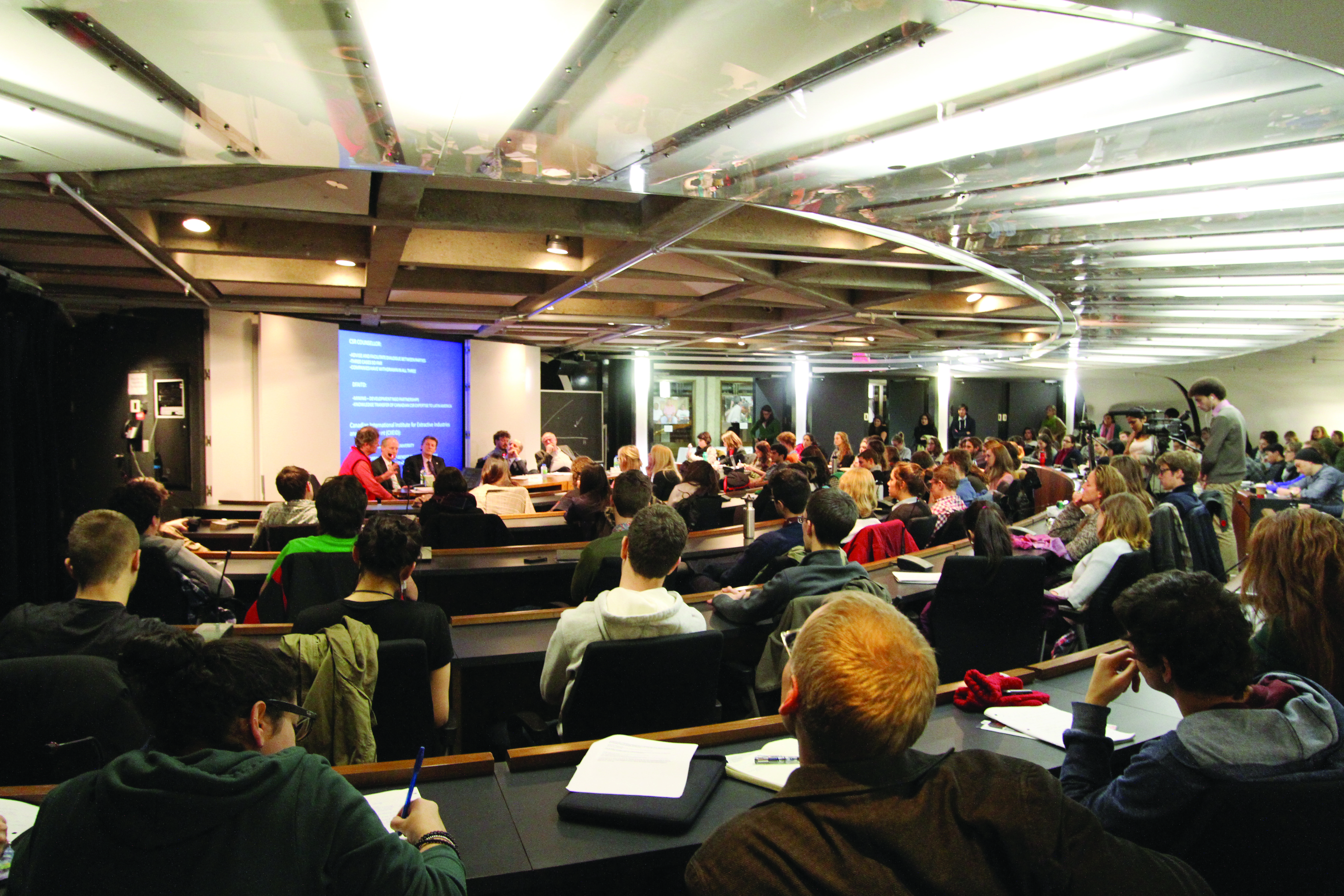The policies and ethics of the Canadian mining industry were at the forefront of a Nov. 21 debate co-hosted by McGill’s Research Group Investigating Canadian Mining in Latin America (MICLA), McGill’s chapter of Journalists for Human Rights, and McGill’s chapter of Amnesty International.
Panelists debated Canada’s current policy of Corporate Social Responsibility (CSR)—an expectation that companies take their own measures to ensure ethical operations and maintain social and environmental sustainability—and its effectiveness as a form of voluntary regulation.
Panelist John McKay, a Liberal Member of Parliament, said he disapproved of the amibuity of current policy and argued that enforcement is the ideal method to ensure the CSR’s standards of responsibility are met.
“We don’t really have a national consensus as to how Canada should enforce compliance with these norms,” McKay said. “I think your optimum choice is actually legislation.”
McKay referenced his 2009 private members bill, C-300, which would have taken a step in legislating extractive industry standards for Canadian companies. The bill, which did not become law, would have mandated mining companies to adhere to human rights standards internationally.
Normand Champigny, president of Quebec-based Donner Metals, expressed a different view, saying that the policy has been effective in developing standards, including involvement of mining companies with local communities, creating job opportunities, and developing areas.
“Workers are trained, safety record is good, and you will find that it’s an opportunity for training and education,” Champigny said. “There are ripple effects in the economy which are significant that would not exist otherwise if you didn’t have this development.”
Grahame Russell, co-director of Rights Action, said the policy is not effective at getting mining corporations to take responsibility because companies favour profit over people.
“There’s no doubt that mining is good—mainly for the mining companies, for the investors, the shareholders, the developers,” said Russell. “What’s sustainable for these companies is their profits.”
Some attendees of the event also expressed their opinion on the policy. Steven Schnoor, activist and professor of communication studies at Concordia University, said he opposed the CSR policy as well.
“There’s no transparency in these [CSR] initiatives,” Schnoor said. “They’re totally discretionary, which means a company can apply them as best they see fit […] I quite believe that CSR is little more than a justification for business as usual, and in that regard, I think it’s actually a step backwards. It’s a dangerous tool of deception.”
Looking to the future of extractive industries
Panelists also discussed their views on the future of sustainable development, extraction, and Canada’s place in the mining industry.
Jamie Kneen, Communications and Outreach Coordinator of MiningWatch Canada, spoke in favour of sustainable development and about his concern for mining’s potentially harmful side effects.
“We need to be collectively looking at what happens beyond economic growth,” he said, “Because we live in a finite world, because we have used up an awful lot of our [resources].”
Jim Cooney, McGill professor at the Institute for International Development Studies, said a sustainable future of the mining industry is possible if preventative measures are taken now. These include “no-go zones,” which would be off limits to mine due to potential environmental or social risk, and the development of a sustainable human progress index, which would integrate economic, socio-cultural, and environmental dimensions of human life equally into governance and decision making.
“You take different dimensions of our human life on this planet—the economic dimensions, the sociocultural dimension, the environmental dimension, the dimension of governance and how we make decisions, and you give equal weight to them, and you engage in a process in which they are constantly integrated and harmonized,” Cooney said.
“A key element is to use the resources of today with respect for the needs of future generations,” he said. “Sustainable development is all about a process.”
Rachel Mulbry, U3 Arts and member of MICLA, said the goal of the event was to broaden the conversation around social responsibility in the mining industry.
“It is a pretty polarized issue,” Mulbry said. “It’s very rare that discussions [between NGOs and policy makers] take place in the same location at the same time, which gives a chance to hold people accountable—all of the people on the panel.”








